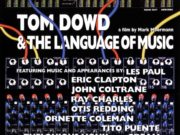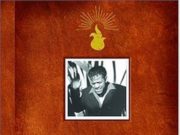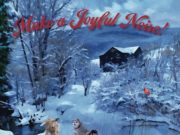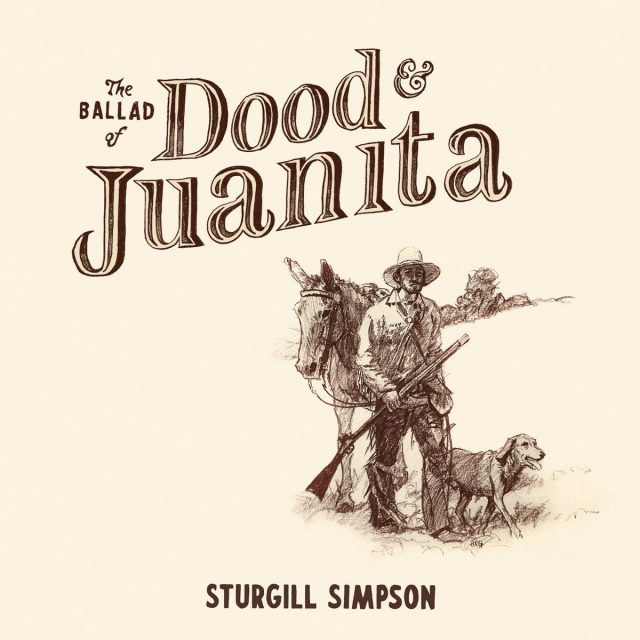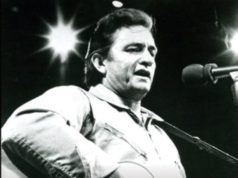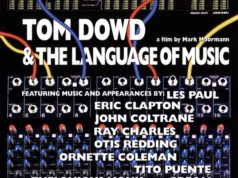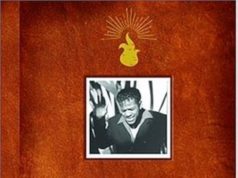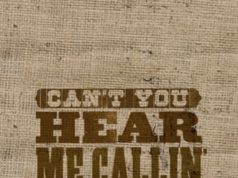THE EDITED PRESS RELEASE: “I’ve only ever really been interested in concept albums,” says Sturgill Simpson. “All my favorite albums are things like What’s Going On, The Wall, Astral Weeks, so I always sort of aim for that. But this time I just wanted to write a story — not a collection of songs that tell a story, but an actual story, front to back.”
Simpson had the title The Ballad of Dood and Juanita in his head for years, and he knew that he wanted to create something in tribute to his grandfather, whom he describes as a “very powerful force and presence in my life,” and who passed away in 2017. But after multiple false starts, he couldn’t crack what the album actually wanted to be.
Driving home from the Oklahoma set of Killers of the Flower Moon — the upcoming Martin Scorsese film in which he co-stars — Simpson put on Willie Nelson’s classic 1975 song cycle Red Headed Stranger, and found himself listening to it eight or nine times on repeat. His wife had recently sent him a photo of two antique Kentucky long rifles that her father had given to her, and an idea suddenly started to crystallize. In two days, he had assembled the entire thing. “I wrote the story in my mind,” he says, “who the characters were — including the mule and the dog — and then realized everybody had to have their own song. I decided to set it back in the Civil War era in eastern Kentucky, and use my grandfather as this fictitious figure, sort of a larger-than-life badass who loved to put violence at bay.”
Simpson immediately called up the magnificent team of roots musicians he assembled for last year’s two volumes of the acclaimed Cuttin’ Grass bluegrass albums, and hustled everyone into Nashville’s legendary Cowboy Arms Hotel and Recording Spa. Not only is it his third album release in less than 12 months, but the entire Ballad of Dood and Juanita project, “from coming into my head to coming out of the speakers,” was completed in five days.

Though it clocks in under 30 minutes, it’s the most ambitious work yet in a career marked by risk-taking and rule-breaking. Simpson has previously challenged genre conventions with 2016’s soul-inflected A Sailor’s Guide to Earth, which won the Grammy Award for Country Album of the Year and was nominated for Album of the Year, and 2019’s Sound & Fury, which was nominated for Best Rock Album. He describes the new album as a “rollercoaster ride through all the styles of traditional country and bluegrass and mountain music that I love, including gospel and a cappella.”
The story is set in 1862. Dood’s soldiering days are long over; he’s just trying to live peacefully off the land. One day, his beautiful wife, Juanita, is working in the garden when a bandit named Seamus McClure rides up, shoots Dood, and steals Juanita away. But the shot went through Dood and his dog cleaned the wound, so he saddles up his mule to go get her back.
Thinking he’s dying, he lies down in the woods, where he’s found by a Cherokee war party that brings Dood back to their chief. Dood — half-Shawnee himself — finds out that Seamus traded Juanita for fresh horses to escape. Dood brings his wife back home, but he’s not done yet — “he realizes he’s got to go get this son of a bitch,” says Simpson, “so he does. It’s not a real complex story. Just a simple tale of either redemption or revenge.”
Simpson emphasizes that the key to executing Dood and Juanita was a laser focus on clarity and simplicity. “I just tried to find the meter and the cadence of the prose,” he says, “and then keep the songs as bare-bones, country simple as possible — three chords at the most — and cut out any excess fat. What can I say in two and a half minutes that gives the listener everything they need to know? It’s a compartmentalized, minimal approach, making every line count.”

He also credits his extraordinary band, which he’s dubbed The Hillbilly Avengers, for helping manifest his vision. “They’re the most talented group of musicians I will ever have the honor of singing in front of,” he says, “and having that level of musicianship behind you just makes you more confident.”
On the song Juanita, he even received the blessing of Willie Nelson, who not only helped inspire the album’s structure, but was also one of Simpson’s grandfather’s favorite artists. “If you write a Spanish love ballad, about a lady named Juanita, in the style of Marty Robbins, there’s only one guy on the planet who can play that guitar solo,” he says. “I hit up Willie’s son Micah to see if we could make it happen, and the next morning, I had the file back in my in box, with a message saying ‘Trigger had fun!’ ”
Spending time on a Martin Scorsese movie set also offered invaluable lessons in storytelling. “It truly is one of the most creatively free environments I’ve ever experienced,” says Simpson. “Seeing his craft first-hand was educational without a doubt, and gave me the inspiration and motivation to really figure out what it was I needed to execute. Everything should be telling a part of the story, otherwise it’s just taking up space — even if it’s really great and out of ego you want to leave it in, if it’s not serving its purpose, you got to get rid of it.”
But in the end, The Ballad of Dood and Juanita really comes down to celebrating a family patriarch and a 60-plus year marriage. “My grandfather gave me the closest thing to guidance I had,” says Simpson. “The thought of letting him down kept me from going even farther down that stray path than I did as a young man. He was my introduction to country music, he only watched westerns, he was just sort of a cowboy dude — and his name really was ‘Dood.’ He was the kind of man I always wished I could be, but I probably don’t possess the character to ever get there. I wanted to make something that really honored his memory, and that my grandmother could hear and make her feel like he was still with her — and that he’ll find her again someday.”



